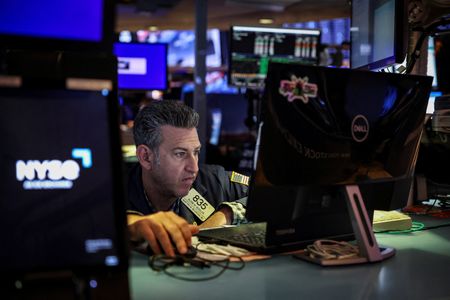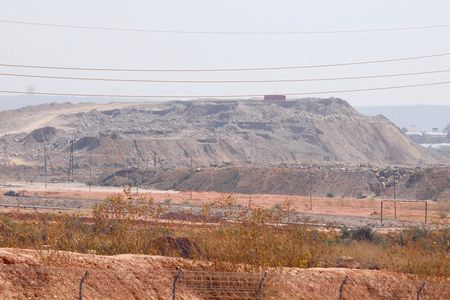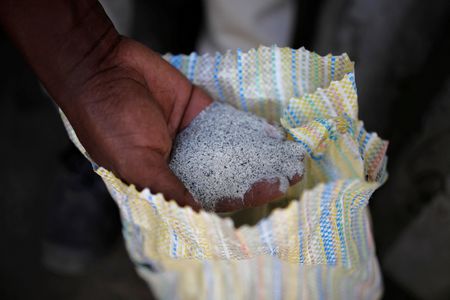JOHANNESBURG (Reuters) -South Africa’s government plans to offer a workaround of local Black ownership laws for Elon Musk’s Starlink internet service to operate in the country, Bloomberg News reported on Tuesday, citing three people familiar with the discussions.
The offer would come at a “last-minute” meeting planned for Tuesday night between South African officials and Musk or his representatives, Bloomberg said.
South Africa’s President Cyril Ramaphosa and a delegation of government officials arrived in Washington on Monday in a bid to reset strained ties with the U.S.
Ramaphosa is scheduled to meet U.S. President Donald Trump on Wednesday. The South African leader’s spokesperson told Reuters on Monday that licensing for Starlink would be discussed during the Washington visit.
Musk, who is South African-born, has previously claimed Starlink was barred from operating in South Africa because he is not Black, an allegation South African officials refuted. South Africa’s telecoms regulator said in March that Starlink had not applied for a licence.
Musk’s assertion appeared to be taking a swipe at local Black Economic Empowerment rules, requiring foreign-owned telecommunications licencees to sell 30% of the equity in their local subsidiaries to historically disadvantaged groups.
Communications and Digital Technologies Minister Solly Malatsi said last year he was working on a draft policy directive to recognise so-called “equity equivalent” investment programmes in the communications sector.
“This will provide the certainty necessary to attract increased investment in ICT and accelerate universal internet access,” he said in October.
Equity equivalents, recognised in other sectors, are in a form of investments made by multinationals in lieu of a direct sale of equity if global practices prevent them. Such investments include investing in skills development, infrastructure or development of small enterprises.
The communications department and Ramaphosa’s office were not immediately available for comment.
(Reporting by Kritika Singh in Bengaluru and Bhargav Acharya and Nqobile Dludla in Johannesburg; Editing by Leroy Leo and Ros Russell)






